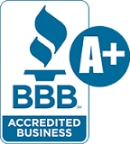F. Any merchant who is injured by the shoplifting of an adult or emancipated minor in violation of subsection A of this section may bring a civil action against the adult or emancipated minor pursuant to section 12-691.
G. In imposing sentence on a person who is convicted of violating this section, the court may require any person to perform public services designated by the court in addition to or in lieu of any fine that the court might impose.
H. Shoplifting property with a value of two thousand dollars or more, shoplifting property during any continuing criminal episode or shoplifting property if done to promote, further or assist any criminal street gang or criminal syndicate is a class 5 felony. Shoplifting property with a value of one thousand dollars or more but less than two thousand dollars is a class 6 felony. Shoplifting property valued at less than one thousand dollars is a class 1 misdemeanor, unless the property is a firearm in which case the shoplifting is a class 6 felony. For the purposes of this subsection, “continuing criminal episode” means theft of property with a value of one thousand five hundred dollars or more if committed during at least three separate incidents within a period of ninety consecutive days.
I. A person who in the course of shoplifting uses an artifice, instrument, container, device or other article with the intent to facilitate shoplifting or who commits shoplifting and who has previously committed or been convicted within the past five years of two or more offenses involving burglary, shoplifting, robbery, organized retail theft or theft is guilty of a class 4 felony.
WHAT THE STATE MUST PROVE:
In order for the State to be successful in their prosecution, they must prove five elements for most shoplifting cases:
1) That the person accused of shoplifting; 2) while in a retail store; 3) knowingly obtained goods; 4) with the intent to deprive the owner or proprietor of such goods; 5) concealed or removed goods from the retail store.
WHAT DOES THIS MEAN?
In practical terms, these elements outline what the prosecution must prove to establish that a shoplifting offense has occurred:
- Identity: They need to identify the person accused of shoplifting; it must be the correct individual.
- Retail Store Location: The alleged shoplifting incident should have taken place within a retail store, which is an essential context.
- Knowledge and Acquisition: The accused must have knowingly obtained the goods, meaning they were aware of their actions.
- Intent to Deprive: There should be evidence or indication that the accused intended to permanently deprive the owner or store of the goods, not just borrow or temporarily possess them.
- Concealment or Removal: The accused should have either hidden or taken the goods out of the retail store. This demonstrates an active effort to unlawfully take possession of the items.
Whether shoplifting is charged as a misdemeanor or felony depends on the total value of the things taken from the merchant, whether the shoplifting was committed as a part of a “continuing criminal episode,” and whether the shoplifting is determined to be gang activity.
Shoplifting is a crime that can also be charged as a felony if a person has been convicted of two or more crimes involving burglary, shoplifting, robbery, or organized retail theft. The third in time rule in this statute can turn what would otherwise be a minor shoplifting offense into a more serious felony requiring prison time.
PENALTIES FOR SHOPLIFTING
Shoplifting could turn into a very serious charge. If you or a loved one have been accused of shoplifting you should contact an attorney immediately.
While a lengthy prison term for shoplifting is unlikely, the State may require some prison time for felony shoplifting, especially if the offense is the third in time.
Offense Statute Felony
$2000 or more A.R.S. § 13-1805(H) Class 5 felony
Criminal episode A.R.S. § 13-1805(H) Class 5 felony
Street gang or syndicate A.R.S. § 13-1805(H) Class 5 felony
$1000 to $2000 A.R.S. § 13-1805(H) Class 6 felony
Less than $1000 A.R.S. § 13-1805(H) Class 1 misdemeanor
Firearm A.R.S. § 13-1805(H) Class 6 felony
Artifice or container A.R.S. § 13-1805(I) Class 4 felony
Third in time A.R.S. § 13-1805(I) Class 4 felony
How Alcock & Associates Can Help
At Alcock & Associates, our Phoenix shoplifting lawyers have a profound understanding of Arizona’s shoplifting laws and legal procedures. We use this expertise to build a strong defense tailored specifically to the unique circumstances of each client.
We employ a variety of defense strategies to achieve reduced charges or explore alternative sentencing options. With unwavering dedication, we provide assertive representation in court, ensuring that your rights remain safeguarded throughout the entire legal proceedings.
In the event of a conviction, our firm is fully equipped to handle the appeals process, tirelessly working to overturn the conviction or secure a more favorable outcome.
Don’t let a shoplifting accusation cast a shadow over your future. Reach out to Alcock & Associates today to initiate a discussion about your case. Your future deserves experienced and dedicated legal support.
















